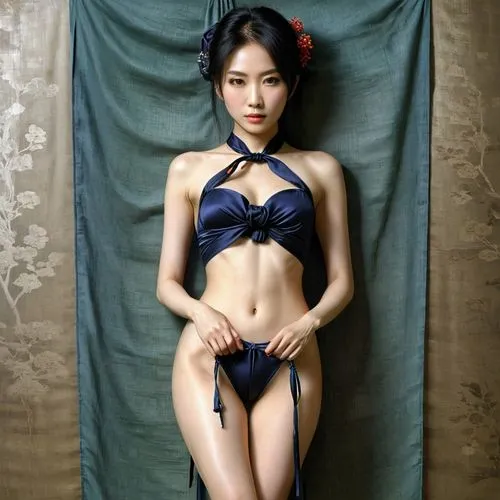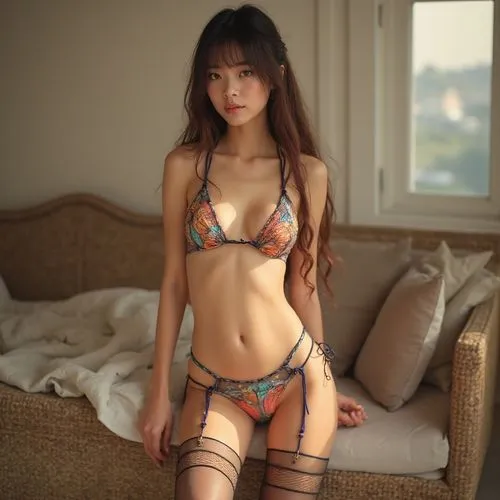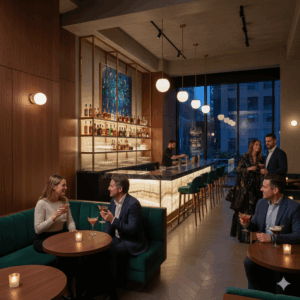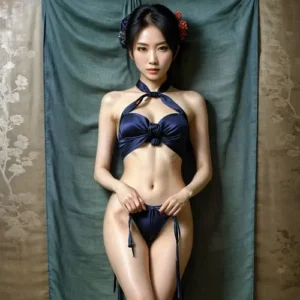Modern Osaka nights are built around compact pedestrian grids—arcades, river walks, and mid-rise buildings with elevators leading to bars, lounges, and clubs. The spatial pattern is standardized: entrance desk, wristband or hand stamp, bar counter, and a dense floor with LED lighting and bass-optimized sound. This guide treats night-time venues as part of the city’s cultural stage—scripted encounters, staff-managed safety, and shared music time. If you want quick orientation for Osaka Night Life, start below and use the primary links to confirm today’s programs.
1. Overview: where should you start in Osaka Night Life?
2. Top Areas & Access: how do you reach them fast?
3. Prices, Time & Eligibility: what does it cost and who can enter?
4. Venue Types & Services: which place fits your style?
5. Reservations, Etiquette & Useful Phrases: how to book and behave?
1. Overview: where should you start in Osaka Night Life?

First-timers should anchor on two connected grids south of the river: Dotonbori (riverside bars and late food) and Shinsaibashi–Amerikamura (dense club streets). For multi-room club nights, Shinsaibashi/Amemura is ideal; for bigger crowds and mainstream parties, Giraffe Osaka is near the river. North of the river, Umeda’s stations concentrate lounges and hotel bars with smooth access to shinkansen via JR Osaka.
1-1 Area snapshot
Amerikamura (“Amemura”) hosts CLUB JOULE (multi-room), CIRCUS OSAKA (underground/bass/techno), and nearby OWL OSAKA (mainstream party). Dotonbori’s riverside has GIRAFFE OSAKA with multiple floors and a central location. Umeda mixes cocktail spots and late lounges; many list hours on building pages or official websites.
1-2 Typical night flow
Check the venue’s “Schedule/イベント” page → buy advance ticket or plan to pay at the door → arrive before midnight to avoid long lines → dance through peak after 1:00am → grab ramen or takoyaki before first trains. Use each venue’s official access map to navigate narrow backstreets.
1-3 What you’ll hear
Amerikamura draws techno/house/bass lineups (CIRCUS, JOULE) plus open-format floors (OWL). Dotonbori’s GIRAFFE leans mainstream EDM/hip-hop party energy. Live houses and DJ bars are scattered between, and many flip genres by night—always verify on the event page.
2. Top Areas & Access: how do you reach them fast?

2-1 Shinsaibashi–Amerikamura cluster
Use Osaka Metro Midosuji Line to Shinsaibashi Station and walk west into Amerikamura. Official access pages: JOULE access, CIRCUS access, and OWL access. Expect 5–8 minutes from station exits to the club doors.
2-2 Dotonbori–Namba riverfront
From Namba Station (Midosuji/Yotsubashi/Sennichimae), walk to the Ebisu Bridge area and along the river. GIRAFFE access gives detailed maps; typical walk is 6–9 minutes depending on exit and crowds.
2-3 Umeda north hub
JR Osaka and Osaka-umeda stations connect to lounges and hotel bars. Many venue sites provide bilingual access notes; check the bar or hotel’s official page for the latest route and hours.
Table 1: Venue Types & Base Fees
| Venue Type | Typical Fee | Session Time | Area (JP Link) |
|---|---|---|---|
| Megaclub (multi-floor) | ¥3,000–¥4,500 incl. 1 drink | 22:00–5:00 (varies) | Official website (Japanese) |
| Large indie club | ¥2,500–¥4,000 event-dependent | Peak after 1:00am | Official website (Japanese) |
| Underground/bass | ¥2,000–¥3,500 | Late start, focused floors | Official website (Japanese) |
These ranges summarize common weekend nights. Always confirm each event’s fee and open/start on the official schedule.
Table 2: Access & Hours
| Station | Walk Time | Hours | Area (JP Link) |
|---|---|---|---|
| Shinsaibashi | 5–8 min to Amemura clubs | Often 22:00–5:00 | Official website (Japanese) |
| Namba | 6–9 min to riverside | Varies by event; check | Official website (Japanese) |
| Osaka-umeda/JR Osaka | 5–12 min to lounges | Hotel bars close earlier | Official website (Japanese) |
Walking times assume central exits; confirm your exit and last-train info on Osaka Metro or JR West.
3. Prices, Time & Eligibility: what does it cost and who can enter?

3-1 Door pricing and drinks
Venues publish exact fees on their event pages: see JOULE schedule, CIRCUS schedule, OWL schedule, and GIRAFFE schedule. Advance e-tickets are often cheaper than paying at the door.
3-2 ID checks, dress, and re-entry
Carry your passport (no photocopies). Dress codes are casual but tidy; sandals or large luggage can be refused at staff discretion. Re-entry varies—check “Information/FAQ” sections on each official site before you go.
3-3 Timing your night
Lines peak around 23:30–01:00. If you need the last train, exit around 23:30. Otherwise plan to stay until first trains near 05:00. Many clubs designate last entry times on their event pages.
Table 3: Reservation & Eligibility
| Method | Lead Time | Eligibility | Official (JP Link) |
|---|---|---|---|
| Advance e-ticket | 1–7 days before weekends | 20+, valid photo ID | Official website (Japanese) |
| VIP/Table inquiry | 2–5 days (earlier for holidays) | Minimum spend applies | Official website (Japanese) |
| Pay at door | Same day | Capacity control | Official website (Japanese) |
Big acts sell out—grab an e-ticket when the lineup is announced on the venue’s official pages.
4. Venue Types & Services: which place fits your style?

4-1 Techno/house & underground
CIRCUS OSAKA programs bass, techno, and experimental nights with an intimate floor and strong sound. Check the schedule for international guests and local labels.
4-2 Multi-room flagships
CLUB JOULE features multiple spaces and a varied calendar—from house/techno to hip-hop showcases. It’s a good base for groups with mixed tastes.
4-3 Mainstream party energy
OWL OSAKA and GIRAFFE OSAKA lean into high-energy open-format/EDM/hip-hop, with crowd-pleasing production and regular themed nights.
5. Reservations, Etiquette & Useful Phrases: how to book and behave?

5-1 Booking playbook
Buy e-tickets from each club’s ticket page (examples: JOULE tickets, CIRCUS tickets, GIRAFFE tickets). For VIP/tables, use the venue’s inquiry form (see GIRAFFE’s VIP page above) or DM if listed.
5-2 Door etiquette & safety
Have your phone ticket and passport ready. Inside, hydrate and respect crowd flow—staff are present to manage capacity and support safety. Smoking areas are signed; some floors are fully non-smoking. If you encounter harassment, tell staff (“STAFF”) immediately.
5-3 Useful phrases (plain & polite)
- “Ticket at the door, please.” → 「当日券でお願いします。」(Tōjitsuken de onegai shimasu.)
- “Where is the cloakroom?” → 「クロークはどこですか?」(Kurōku wa doko desu ka?)
- “Is re-entry allowed?” → 「再入場はできますか?」(Sai-nyūjō wa dekimasu ka?)
- “Two highballs, please.” → 「ハイボールを二つお願いします。」(Haibōru o futatsu onegai shimasu.)
- “Thank you, great night!” → 「ありがとうございます。最高の夜でした!」
6. Summary and Next Steps
In short, center your night on the south-of-river grid. Walkable distances and clearly posted schedules make Osaka efficient for club-hopping. Prices cluster around ¥2,000–¥4,000, peaks often after 1:00am, and trains pause around midnight. Decide early whether you will leave before the last train or aim for first trains around dawn. Keep your ID handy, travel light, and enjoy the open, talkative vibe that defines Osaka after dark.
Landing in a new city at night can be thrilling and confusing in equal measure. In Osaka, choices multiply fast—Amerikamura’s underground rooms, Dotonbori’s riverfront party floors, and Umeda’s polished lounges. Lineups shift nightly, door prices change with the headliner, and last trains can cut a great night short. Many visitors spend the first hour hunting for the right entrance or the right vibe. That’s energy you should be spending on music and friends, not logistics.
Here’s a simple path that works. First, pick your zone: Amerikamura for variety within a few blocks, Dotonbori for a single, high-energy venue, or Umeda for an easier glide from JR and hotel bars. Second, check the official schedule pages in this guide and decide whether to buy an e-ticket. If a guest headliner is listed or it’s a holiday weekend, pre-purchase. Third, set your transport decision before you leave the hotel: last train by 23:30, or first train around 05:00. Finally, bring your passport and a small bag—Osaka floors get lively, and traveling light makes you freer.
SoapEmpire is built to remove friction from nights like this. We cover Osaka Night Life in clear English, map venues to tastes (from underground at CIRCUS to multi-room at CLUB JOULE, from mainstream at GIRAFFE to flexible nights at OWL), and distill the numbers—entry ranges, walk times, and peak hours—so you can make a fast, confident plan. Our strength is curation plus service: we keep focus on primary sources, and when you want support, we step in. The benefit is straightforward: less time wandering, more time dancing, and fewer surprises at the door.
If you’d rather we handle the calls and messages in Japanese, we offer 24-hour booking support for a flat $10. Tell us the club, your window of time, and any preferences (VIP table, birthday, quiet corner). We’ll contact the venue, confirm details, and send you a tidy, one-message itinerary. You arrive, show ID, and step straight into the night you wanted. For reservations or inquiries, please contact us via the inquiry form.
Explore more on SoapEmpire:
Tokyo Nightlife Districts Explained,
<">Osaka Soapland & Nightlife Guide,
<>How to Book in Japan (English),
and our official site SoapEmpire.
If you’re interested in visiting any of these places, SoapEmpire offers a 24-hour booking support service for only $10.
Just send the store name, preferred time, and your name (nickname is fine) to:
takuma@skylinks-inc.com.
We’ll take care of your reservation quickly and smoothly.
FAQ
Q1: How much does a night out cost in Osaka?
A: Most clubs charge ¥2,000–¥4,000 including one drink. Extra drinks are ¥700–¥1,000. VIP tables and holiday events cost more—check the event page on each official site.
Q2: What are the best areas to start?
A: For hopping, start in Shinsaibashi–Amerikamura (JOULE, CIRCUS, OWL). For one high-energy venue near the river, go to Dotonbori (GIRAFFE). Umeda is best for lounges and hotel bars.
Q3: How do I book tickets or VIP?
A: Use the venue’s ticket page (e.g., JOULE/CIRCUS/GIRAFFE links above). For VIP/tables, submit the club’s inquiry form or ask SoapEmpire to arrange on your behalf.
Q4: Do I need to bring ID?
A: Yes. Japan’s drinking age is 20 and clubs check ID. Carry your original passport.
Q5: When should I arrive?
A: If you want easy entry, arrive before 24:00. Peak energy is usually after 1:00am. Decide early whether you’ll catch the last train or wait for the first train.
Editor’s note: Numbers are typical weekend ranges. Always verify walk times, prices, and operating hours on the venues’ official pages linked above.


